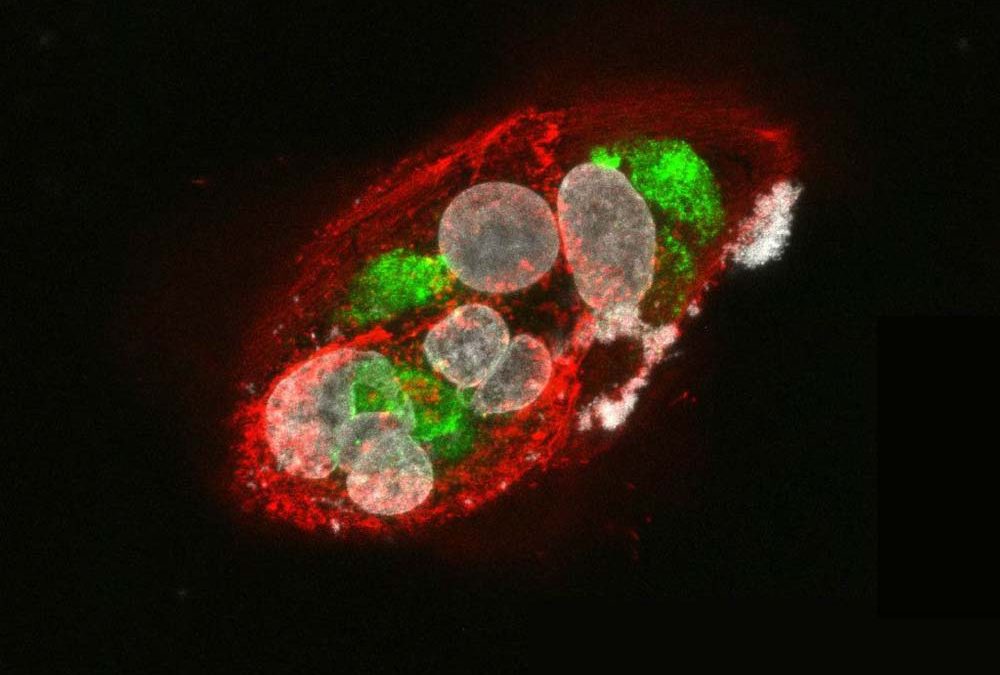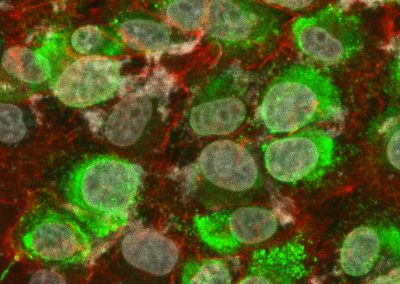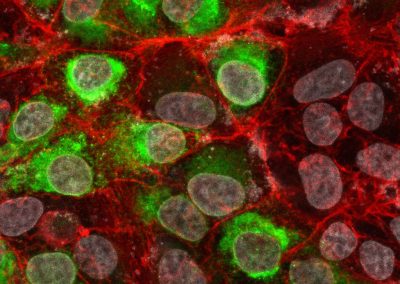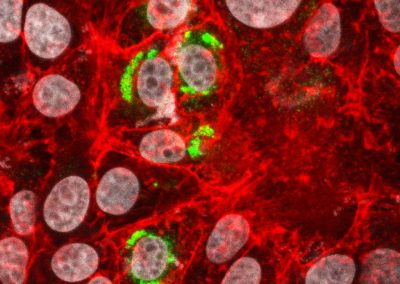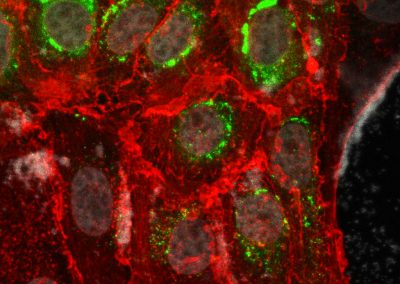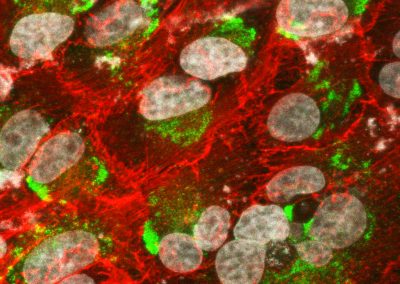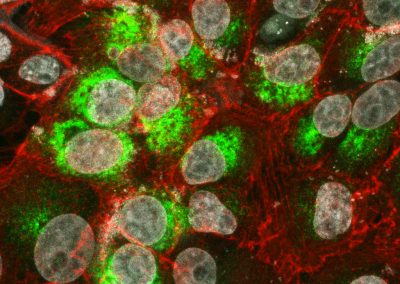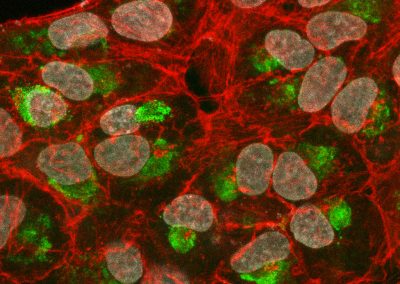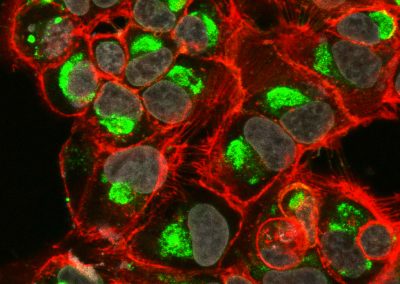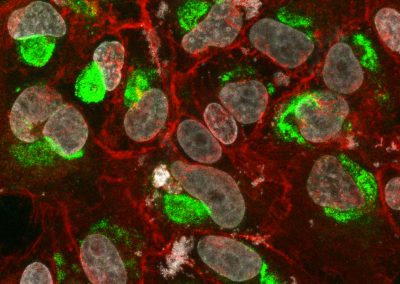We recently teamed-up with Virology Research Services (VRS) to test a large panel of our viral antibodies in immunofluorescence applications. This work was funded by the Medical Research Council (Proximity to Discovery Award for Knowledge Exchange) through the University College London Translational Research Office and aimed to improve utilisation of the available immunofluorescence resources.
Immunofluorescence (IF) is widely used for high-throughput screenings and high-resolution imaging, the success of which depends on the specificity and sensitivity of the selected antibodies. However, the limited availability of valid IF protocols and reagents is a major obstacle in viral research, creating a barrier to purchase and leading to under-utilisation of the available resources.
To provide the scientific community with the best possible products for their application, VRS tested our flavivirus antibodies against four dengue serotypes, as well as African and Asian strains of Zika virus.
High-Throughput Applications
First, virologists at VRS tested the antibodies’ cross-reactivity among the four dengue serotypes and Zika’s African and Asian strains by high-throughput confocal imaging experiments, using a high content screening system (Opera, PerkinElmer).
For this, Vero cells were seeded on 96-well plates, and infected with the virus strains for 48 hours. Following culture, samples were fixed, permeabilized and stained, testing different permeabilization conditions and multiple dilutions of the primary antibodies. Indirect immunofluorescence using an Alexa Fluor 488-conjugated secondary antibody was used for immuno-visualisation.
Using Triton X100 permeabilization and an antibody dilution of 1:500 (approx 2 μg/ml) resulted in excellent specificity (negative staining in the no-infection controls) and Opera imaging results demonstrate the suitability of the tested antibodies for high-throughput IF applications.
High Resolution Applications
High-quality, high-resolution IF images can be very informative and are often required for publications. To further validate the antibodies’ performance, the VRS team selected the best performing antibodies against each viral strain to produce higher magnification, high-resolution IF images, using an SP5 confocal microscope (Leica).
Vero cells were seeded on coverslips and infected with the virus strains for 48 hours. Samples were then fixed and permeabilized with Triton-X100, which in the optimization studies above performed marginally better than saponin. The primary antibodies were used at a 1/500 dilution and detected with an Alexa Fluor 488-conjugated secondary antibody. To reveal the cell shape, Phalloidin was used to label actin (in red) and DAPI was applied as a nuclear counterstain. A full protocol for staining can be found here.
Examples of the IF results produced by VRS are shown below.
This testing demonstrated very clearly that good results in immunofluorescence applications are highly dependent on the antibodies being used, and that antibody performance in applications such as ELISAs cannot be extrapolated to IF. Such data is extremely valuable in being able to recommend the best reagents to customers for their specific application.
High Resolution Applications
The following antibodies were shown to perform excellently in immunofluorescence:
- MAB12135 – specific for Dengue serotype 2
- MAB12136 – specific for Dengue prM protein (all serotypes)
- MAB12134 – specific for Dengue serotype 2 NS1 protein
- AbDENV14-NS1-CM436 – specific for Dengue serotype 4 NS1 protein
- AbDENV2-NS1-CM474 – specific for Dengue serotype 2 NS1 protein
- AbDENV-NS1-DA034 – specific for Dengue NS1 protein, preferentially staining serotypes 1 and 3
- AbZIKV-NS1-B4 – specific for Zika NS1 protein
- AbZIKV-NS1-D11 -specific for Zika NS1 protein
- AbZIKV-NS1-F9 – specific for Zika NS1 protein, preferentially staining African strain vs. Asian strain
This data is now available on our website for each antibody, to ensure researchers can make better-informed decisions and get the best results at the bench.
Virology Research Services Ltd is based at UCL and provides virology-focused research services to industry and academia. To find out how they can help with your research, visit virologyresearchservices.com.

